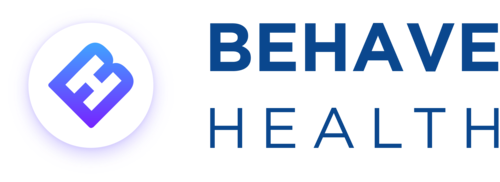Now that North Carolina has become the 41st state in the nation to adopt the Affordable Care Act Medicaid expansion, it’s obvious that many more patients will become eligible for addiction treatment services in the very near future. Hundreds of thousands of residents will now be added to the Medicaid roster and many of them will seek SUD treatment services. Now is an excellent time to refine your billing department’s Medicaid billing process. In this post, we’ll cover some of the most common questions addiction treatment providers in North Carolina encounter when filing claims.
Does North Carolina have the capacity to serve the influx of addiction treatment patients from Medicaid expansion?
In short, no, North Carolina does not have capacity it needs to meet the demand for Medicaid-covered addiction treatment services, especially in light of the growing number of eligible patients. A federal study showed that 97% of counties in North Carolina don’t have adequate mental health or behavioral health services to meet the existing demand. As North Carolina’s overdose death rate has skyrocketed and Medicaid expansion makes services more accessible to more people, providers are seeing roughly 10,000 more people seeking treatment state-wide per year.
Does North Carolina cover peer support services for Medicaid patients seeking addiction treatment?
Yes. Peer support services are covered under North Carolina’s Medicaid program. HCPCS code H0038 and H0038 HQ are the most commonly used CPT codes for peer support services. H0038 is eligible for telehealth services, but H0038 HQ must be performed in person. North Carolina even has a program to mint certified peer support specialists to bolster the addiction treatment workforce.
Does North Carolina Medicaid cover intensive outpatient programs, comprehensive outpatient treatment or social setting detox?
Yes. Session Law 2023-134 recently changed state law to create better access to substance use disorder services in North Carolina. As part of these changes, members enrolled in a Standard Plan under Medicaid can participate in Substance Abuse Intensive Outpatient Programs (SAIOP), Substance Abuse Comprehensive Outpatient Treatment (SACOT) as well as social setting detox programs.
What are some of the most-used CPT codes for Addiction Treatment Medicaid billing in North Carolina?
According to 8A and Substance Abuse Services, some of the allowable billing codes for Medicaid patients seeking addiction treatment in North Carolina include:
H2002 - Intensive In-Home Services
H2033 - Multisystemic Therapy
H2017 Psychosocial Rehabilitation
H2012 - Child and Adolescent Day Treatment
H0035 - Partial Hospitalization
S0484 - Professional Treatment Services in Facility-Based Crisis Program
H0015 - Substance Abuse Intensive Outpatient Program
H2035 - Substance Abuse Comprehensive Outpatient Treatment
H0012 - Substance Abuse Non-Medical Community Residential Treatment
H0013 - Substance Abuse Medically Monitored Community Residential Treatment
H0014 - Ambulatory Detoxification
H0010 - Non-Hospital Medical Detoxification
H2036 - Medically Supervised Detoxification Crisis Stabilization
H0020 - Opioid Treatment
What are some of the exclusions and limits to Medicaid coverage for addiction treatment in North Carolina?
North Carolina has some common exclusions and limits to their Medicaid program, including the following:
Intensive outpatient must not be less than three hours of service per day.
Medically monitored community residential treatment must not exceed 45 days in a 12 month period.
Non-hospital detox must not exceed more than 45 days in a 12-month period.
Medically supervised detox/crisis stabilization can only be billed for 30 days within a 12 month period.
Does North Carolina Medicaid cover sober living homes?
No. In fact, room and board is specifically mentioned in several bulletins created by the North Carolina Medicaid Division of Health Benefits as a service that is not covered under Medicaid. Sober living is not typically covered under Medicaid benefits because Medicaid programs tend to follow ASAM-prescribed levels of care. Although the newest update to the ASAM Criteria does highlight the importance of sober living, the organization still has not elevated sober living to the official continuum of care.
Interested in learning more about managing an addiction treatment business in North Carolina?
Here’s some other blog posts you may find interesting:
How to Open a Certified Addiction Treatment Center in North Carolina
No One Knows North Carolina Medicaid Billing like Behave Health
Behave Health is committed to making it easier - and more profitable - to operate evidence-based, results-focused addiction treatment centers.
Our all-in-one app puts clinical, administration, staff, admissions, alumni, residents, treatment plans, billing, insurance authorizations and more - all at your fingertips.
Get your free trial started today and see why more addiction treatment centers prefer Behave Health.
PS. Just getting started with behavioral health? Need help with certification, too? Behave Health can also help direct you to the right resources for help with Licensing or Accreditation by either The Joint Commission or CARF. Mention to your product specialist that you’re interested in this service after you start your free trial!




